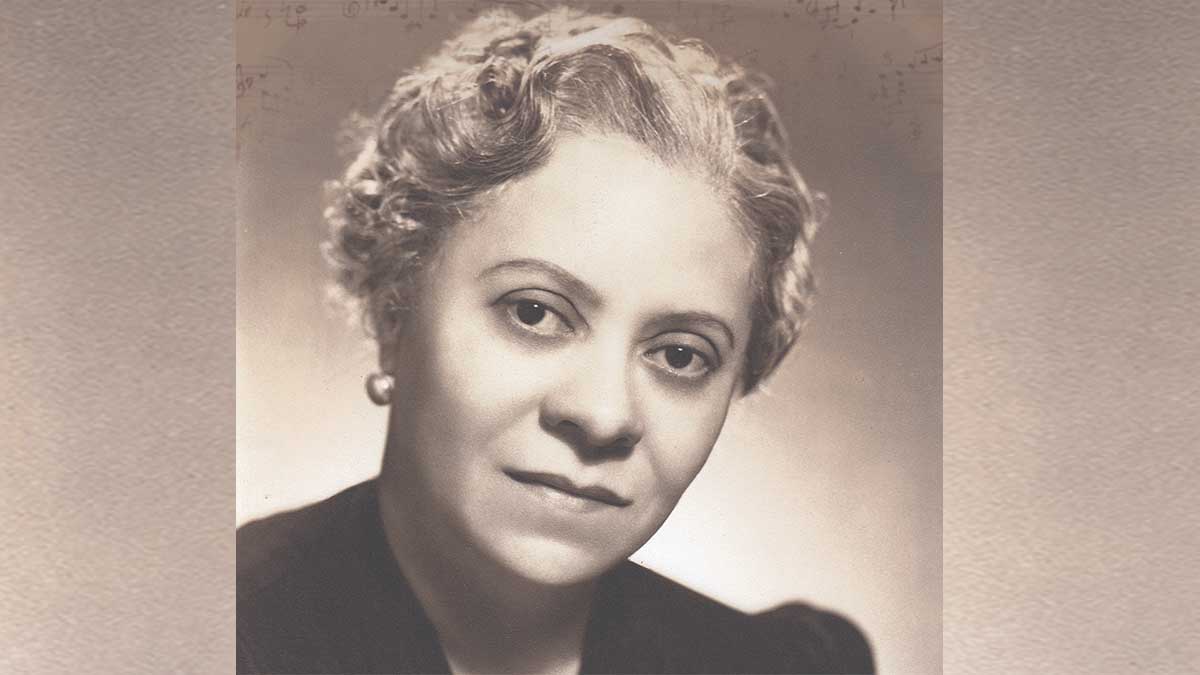
A composer, pianist, organist, and music teacher, Florence Price is recognized as the first African-American woman to have a symphonic work performed by a major national symphony orchestra. Her extraordinary achievements during the racist "Jim Crow" era are a testament to her immense gifts and determination.
Born in Little Rock, AR in 1887, Price grew up in a middle-class household and attended the New England Conservatory, one of the few that admitted African-Americans at the time. Fleeing racial violence in her home state, Price moved with her family to Chicago where her career began to flourish. She won first prize in the Wanamaker Competition with her Symphony in E minor which caught the attention of Chicago Symphony Orchestra Music Director Frederick Stock. The piece was premiered by the Orchestra in 1933 with The Chicago Daily News reporting "It is a faultless work, a work that speaks its own message with restraint and yet with passion ... worthy of a place in the regular symphonic repertory."
Florence Price's musical style was influenced by composers such as Dvořák and Coleridge-Taylor. It is infused with European and African-American musical and cultural elements, including spiritual melodies, gospel church music, and African instruments such as the marimba.
Her piece Adoration, arranged for Brass Quintet, was performed by members of the CSO's brass section on our latest al Fresco concert.
Though recognized in her day, Florence Price's memory and music faded into history - perhaps due in part to the relatively small number of surviving compositions. However, in 2009, nearly 200 of Price's manuscripts were discovered, tucked neatly away in boxes in an old fixer-upper in a suburb of Chicago. The discovery has prompted a happy resurgence in the popularity of her works. We can all hope that this re-examination of her talent and musicality will allow Florence Price to take her rightful place among the great American composers.







